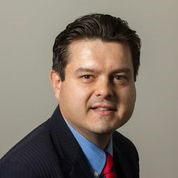 Progressive Voice is a weekly opinion column. The views and opinions expressed in the column are those of the individual authors and do not necessarily reflect the views of their organizations or ARLnow.com.
Progressive Voice is a weekly opinion column. The views and opinions expressed in the column are those of the individual authors and do not necessarily reflect the views of their organizations or ARLnow.com.
By Joseph Leitmann-Santa Cruz
I am proud to call myself an Arlingtonian. One of the reasons for this pride is that I believe our community recognizes the importance of creating opportunities for all to succeed. Ours is a community that proactively gets involved in the process of effecting positive change.
As a result, we have done very well as a community from a macro socio-economic perspective. However, as a community we have a lot more to do to create conditions whereby that success develops more broadly – especially for communities of color to prosper in ways that are more equitable while also benefiting the entire community.
This can be seen from a closer look at poverty in Arlington County. Overall, the County has a low income poverty rate (6%). That rate is less than half of the percentage of households living in income poverty across the United States.
Yet African Americans and Latinos face a different income situation in Arlington. Their poverty rates are 14.7% and 15.4%, respectively.
Moreover, while the median household income in Arlington is approximately $103,000, the median household income for African Americans is approximately $60,000 and for Latinos approximately $63,000.
Another indicator of the socio-economic wellbeing of a community is the ability of its residents to deal with an adverse personal financial event. According to a new data analysis from Family Assets Count — a project of the Corporation for Enterprise Development (CFED) and the Assets & Opportunity Initiative — more than one of every five Arlington households (23%) is financially vulnerable. Communities of color fare even worse: 50% of African American households and 58% of Latino households are poor in terms of liquid assets.
A household is considered to be liquid asset poor if it does not have enough savings to live above the poverty line for just three months if they face loss of a job, a medical crisis, or a similar substantial income disruption.
As a result, one out of every two African American and Latino households in Arlington live in a state of persistent financial insecurity, one emergency away from falling into debt, losing a home, or suffering from poverty.
While there is no magic formula to fix problems in life, there are steps we can take to build a stronger sense of household financial security.
Based on my professional experience in working on asset-building and wealth creation solutions for low- and moderate-income families, I have five recommendations that can serve as a good starting point:
- Empower low- and moderate-income African American and Latino youth to maximize their usage of our world-class education system;
- Further position our superb library system as a conduit to provide financial capability services and access to financial capability resources and tools;
- Strengthen and increase homeownership, entrepreneurship and small business technical assistance programs for Spanish and Amharic-speaking residents;
- Lower the number of Arlingtonians who are unbanked or underbanked. Currently, one out of five Arlington residents is unbanked (doesn’t have a checking or savings account) or underbanked (has bank account but still relies on an alternative financial service such as payday loans or check-cashing;
- Raise awareness of tax credits for low-income residents in order to attract further federal monies to our community, especially associated with the Earned Income Tax Credit, Child and Dependent Care Credit, and the Savers Tax Credit.
Let’s celebrate financial and entrepreneurial successes in our community. Let us also recognize that we can simultaneously provide opportunities for many others to succeed. More can be done to make our vulnerable residents less so, and enhance financial acumen to broaden our prosperity.
We can be a stronger community and a more stable and equitable community by recognizing vulnerability and sharing more broadly the tools for success.
I look forward to being part of our collaborative approach to benefit all in the community. How about you?
Joseph Leitmann-Santa Cruz works for an asset-building organization in Washington, D.C. and is a member of the Board of Directors of the Arlington-based non-profit organization Dream Project.

